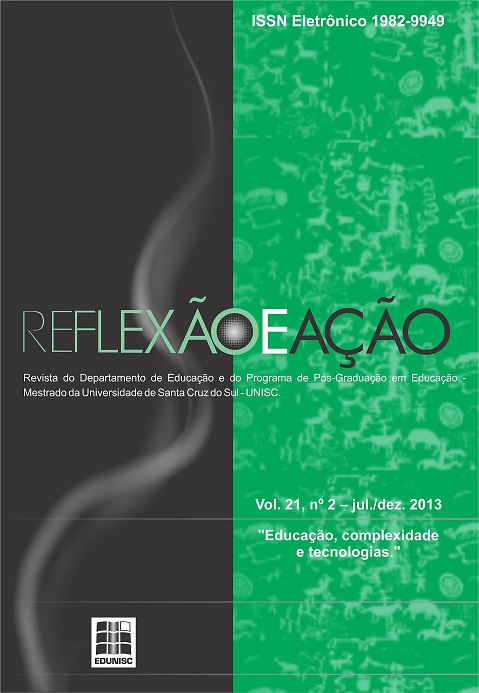CHILDREN, READING AND CYBERCULTURE: THE TYPES OF READERS AND NAVIGATORS IN THE ELEMENTARY SCHOOL
DOI:
https://doi.org/10.17058/rea.v21i2.3820Keywords:
Immersive Reader, Navigation, Cyberspace, Computerized RoomAbstract
The children who attend elementary school are part of the digital age and have presented a cognitive profile of reading different of the individuals who were born in previous decades. Therefore this article aims to investigate the profiles of reading that these children are developing in cyberspace. The main goal of this research is to contribute to the discussions that relate the reading process to the navigation, based on the studies of Lucia Santaella (2004). The data were collected from the teachers responsible for the computerized rooms, through questionnaires, in order to identify the different types of readers and navigators that are developing in cyberspace. The results indicate that there is no single of reader profile. It was perceived that the profiles identified are rapidly changing toward the cognitive profile of immersive reader, in other words, children perform fast readings and in a dynamic way. They navigate in the hypermedia easily and they use the tools of cyberspace in a very intuitively way and without any assistance. This profile promotes the development of skills and competencies in reading and in navigation that often are not considered by the school system.Downloads
Downloads
Published
How to Cite
Issue
Section
License
The submission of originals to this journal implies on the transference, by the author(s), of the printed and digital publishing rights. The author´s rights to the published articles are the author´s, the journal has the rights over the first publication. The author(s) can only use the same results in other publications, indicating clearly that this journal was the original publisher. Since we are an open access journal, the free use of articles is permitted for educational and scientific applications, as long as they inform the source according with the CC-BY license from Creative Commons.


